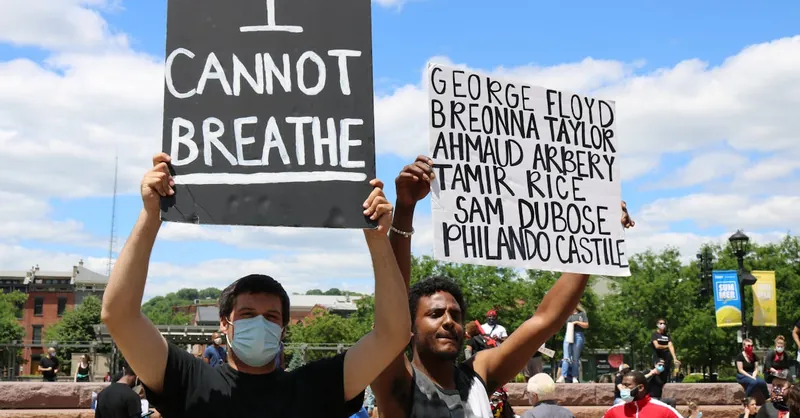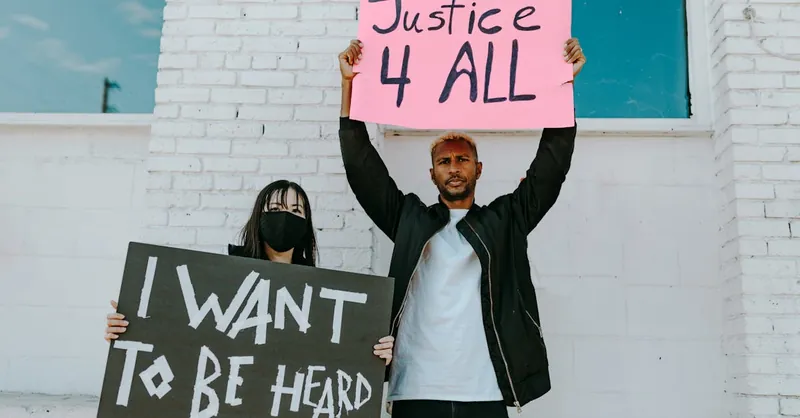Exposing Karen Rudeness: Unmasking Entitlement & Social Chaos
Category: Social Issues
Understanding the Culture of Karen Rudeness
If you've ever encountered the infamous "Karen"—the outspoken individual who insists on their own way while disregarding fairness and empathy—you know it can leave a sour taste and a sense of injustice. This post is crafted for those who are socially conscious readers seeking to dissect and expose the growing phenomenon of overt entitlement and disruptive behavior that fuels social unrest. Perhaps you've witnessed a situation where someone's selfish actions caused unfairness or even social harm, and you want to understand the roots, traits, and impacts of such behavior to better navigate or advocate against it.
Unlike generic rudeness, Karen rudeness is a cultural symbol of entitlement, privilege, and insensitivity that affects communities and social spaces. This article goes beyond viral clips and memes to critically analyze the mindset, social triggers, and consequences of these behaviors. You’ll discover a systematic breakdown of how Karen rudeness manifests, why it persists, and how to effectively expose and counter it without escalating conflict.
If you’re tired of hit-or-miss takes and want a comprehensive, well-structured insight into the entitlement epidemic, this post is your guide. We dive into psychology, social justice angles, real-world examples, and proactive strategies that will empower you to recognize and confront Karen rudeness thoughtfully and constructively. Read on to unravel the madness behind the entitlement and champion fairness in your communities.
- Understanding the Culture of Karen Rudeness
- Defining Karen Rudeness: Origins and Characteristics
- The Psychology Behind Entitlement and Disruptive Behavior
- Common Scenarios Where Karen Rudeness Surfaces
- Impact of Karen Rudeness on Social Justice and Fairness
- Media’s Role: Viral Videos and Social Commentary
- Strategies to De-escalate and Expose Karen Rudeness Constructively
- Legal and Workplace Implications of Karen Behavior
- The Broader Cultural Conversation: Entitlement, Privilege, and Social Change
- How to Educate and Advocate Against Entitlement Culture
- Case Studies: Real Incidents and Lessons Learned
Defining Karen Rudeness: Origins and Characteristics
To truly expose and address Karen rudeness, it’s crucial to understand what defines a "Karen" beyond internet memes and viral videos. The term "Karen" has evolved culturally to symbolize a specific type of entitled and disruptive behavior, often exhibited by individuals—predominantly women—who insist on imposing their will regardless of rules, social norms, or the impact on others. This behavior frequently manifests as unwarranted complaints, demands for special treatment, and dismissiveness toward service workers or marginalized groups.
Origins of the Term "Karen"
The rise of “Karen” as a cultural label can be traced back to social media platforms that highlighted patterns of privileged individuals leveraging entitlement to enforce unfairness. While the exact origin is ambiguous, the Karens surfaced as collective symbols during discussions about racial injustice, consumer disputes, and public disturbances driven by an attitude of superiority and self-centeredness. This label has since become shorthand for a blend of rudeness, entitlement, and a complete lack of social awareness.
Common Characteristics of Karen Rudeness
Karen rudeness is marked not just by general impoliteness but by behaviors that reveal deeper systemic issues tied to privilege and power dynamics. Typical traits include:
- Demanding special treatment: Insisting on bypassing rules or access that others must follow.
- Escalating minor conflicts: Amplifying small issues into public confrontations.
- Disregard for social norms or empathy: Ignoring the feelings and rights of others during interactions.
- Weaponizing authority or status: Calling managers, police, or other authorities unnecessarily to enforce personal desires.
- Performative victimhood: Acting as if wronged to manipulate situations for personal gain.
By recognizing these behaviors as part of a broader pattern of entitlement-based rudeness, communities and individuals become better equipped to identify Karen-related conflicts and advocate for fairness without falling into unproductive arguments or perpetuating social divisions. Understanding the origins and characteristics of Karen rudeness thus lays the foundation for effective exposure and constructive confrontation of this troubling social phenomenon.

Image courtesy of Artem Podrez
The Psychology Behind Entitlement and Disruptive Behavior
To truly understand the driving forces behind Karen rudeness, it is essential to analyze the psychological traits that fuel such entitlement and disruptive behavior. This is not merely a reflection of bad manners but a complex interplay of narcissism, privilege perception, and social conditioning that shapes the mindset responsible for these interactions.
Narcissism and the Inflated Sense of Self
At the core of many Karen encounters lies a degree of narcissistic personality traits—characterized by an inflated sense of self-importance, a craving for admiration, and a lack of empathy for others. This psychological outlook manifests as:
- Overestimating personal entitlement: Believing that one's desires inherently outweigh others' needs or fairness.
- Seeking control and validation: Insisting on dominance in social situations as a way to affirm self-worth.
- Lacking recognition of other perspectives: Ignoring or devaluing the impact of their actions on people around them.
This narcissistic framework explains why Karens often escalate minor issues into major confrontations, as their self-centered worldview resists compromise or accountability.
Privilege Perception and Social Hierarchies
Another critical psychological factor is the heightened perception of privilege—often unconscious—rooted in social and systemic advantages. Many Karens act from a position of unexamined privilege, which fosters a belief that rules are flexible for them due to factors such as race, class, gender, or socioeconomic status. This can lead to:
- Assuming authority over others: Feeling entitled to dictate how situations and people should conform to their expectations.
- Dismissing social norms and boundaries: Believing they are exempt from rules that govern equitable treatment.
- Reacting aggressively to perceived slights: Interpreting challenges or denials as personal attacks rather than legitimate boundaries.
Social Conditioning and Cultural Reinforcement
Lastly, social conditioning plays a powerful role in reinforcing Karen behaviors. From upbringing to media representation and peer environments, societal messages may validate the notion that demanding and disruptive behavior is an acceptable means to achieve outcomes. Key aspects include:
- Normalization of entitlement: Receiving positive reinforcement when exerting dominance or demanding special treatment.
- Learned helplessness in conflict resolution: Resorting to complaints and escalation as default strategies rather than dialogue.
- Cultural narratives around victimhood: Using performative grievances as a social tool to gain sympathy or leverage.
Understanding these psychological components offers invaluable insight into why Karen rudeness is not random but patterned, systemic, and resistant to change without conscious awareness and intervention. By unpacking these mental frameworks, advocates and communities can better strategize on exposing entitlement, promoting empathy, and restoring fairness in social interactions.

Image courtesy of Mikhail Nilov
Common Scenarios Where Karen Rudeness Surfaces
Karen rudeness commonly emerges in a variety of everyday settings where entitlement clashes with social norms, revealing the disruptive impact of this behavior. By examining typical real-life scenarios, from retail environments to public spaces, we can identify how entitlement manifests, disrupts fairness, and fuels unnecessary conflict.
Retail and Customer Service Interactions
One of the most frequent arenas for Karen rudeness is retail stores, restaurants, and service counters, where customer expectations meet employee policies. In these settings, Karens often:
- Demand exceptions to store rules or policies: Insisting on refunds without proof of purchase, special discounts, or access to restricted areas.
- Refuse to comply with reasonable requests: Such as mask mandates, line queues, or return deadlines, escalating minor inconveniences into loud confrontations.
- Insist on speaking to managers or authorities unnecessarily: Weaponizing customer service hierarchies to intimidate or coerce employees.
- Display condescending and dismissive attitudes: Undermining staff professionalism with racist, sexist, or classist remarks.
This entitlement-driven behavior not only undermines workers’ dignity but also creates an unfair environment for other customers, disrupting the flow of service and community trust.
Public Spaces and Community Settings
Beyond retail, Karen rudeness frequently appears in public environments like parks, neighborhoods, and transportation hubs, where the assertion of personal control clashes with communal rules. Common patterns include:
- Calling authorities to enforce personal preferences: Reporting “suspicious” individuals or minor infractions disproportionately, often motivated by bias or misunderstanding.
- Interrupting and arguing over public amenities: Insisting on priority seating, parking spots, or access despite clear regulations.
- Engaging in loud, public disputes: Escalating disagreements over noise, pet policies, or social distancing into verbal or even physical confrontations.
Such interactions disrupt community cohesion and highlight how entitlement perpetuates social injustice by privileging individual desires over collective fairness.
Healthcare and Education Settings
Karens also surface in medical and educational environments, demanding unreasonable accommodations or dismissing expert advice:
- Expecting immediate service or special treatment in busy clinics or schools.
- Challenging staff instructions with unfounded complaints or conspiracy theories.
- Exhibiting aggressive behavior that intimidates vulnerable staff or patients.
These scenarios illustrate how entitlement transcends sectors, posing challenges to fairness and respect wherever rules and professional boundaries exist.
Recognizing these common scenarios is crucial for both individuals and organizations striving to identify, expose, and mitigate Karen rudeness. By understanding where and how entitlement-driven behaviors arise, communities can develop targeted strategies that reinforce empathy, uphold equity, and discourage disruptive demands that undermine social trust.

Image courtesy of Antoni Shkraba Studio
Impact of Karen Rudeness on Social Justice and Fairness
The disruptive behavior of Karens extends far beyond isolated incidents of rudeness; it actively contributes to systemic unfairness, discrimination, and social inequalities. When entitlement-driven actions prioritize one individual’s desires over collective rights, they amplify existing social divides and perpetuate injustices within communities. Understanding this impact is essential to addressing how Karen rudeness undermines the foundation of equitable social interactions.
Reinforcing Systemic Discrimination
Karen behaviors often intersect with racial, socioeconomic, and gender biases, making their rudeness not just a personal flaw but a tool that reinforces broader patterns of discrimination. By weaponizing authority—such as unnecessarily calling law enforcement on marginalized individuals or demanding preferential treatment—Karens amplify power imbalances that disproportionately harm vulnerable groups. This unfair targeting can lead to:
- Disproportionate policing and surveillance of minority communities.
- Marginalization through exclusionary demands and gatekeeping.
- Perpetuation of negative stereotypes and social stigmatization.
Such actions not only exacerbate social inequalities but also erode trust between community members and public institutions, hindering progress toward justice and inclusion.
Undermining Social Equity and Community Trust
The entitlement displayed by Karens disrupts fair access to resources and services, creating environments where social justice fails to thrive. By insisting on exceptions or exploiting privileges, they:
- Deny others fair treatment under established rules and policies.
- Fuel resentment and division by elevating personal grievances above communal well-being.
- Strain social services and institutions through unnecessary escalations.
These consequences contribute to a social atmosphere where fairness is compromised, and marginalized voices are further silenced or dismissed. Therefore, confronting Karen rudeness is not merely about addressing individual misbehavior—it is a critical step toward dismantling systemic barriers and fostering equitable social dynamics. Recognizing the broader ramifications of entitlement-driven rudeness empowers advocates, organizations, and everyday individuals to challenge injustices and promote accountability that benefits all members of society.

Image courtesy of Doris Pulliam
Media’s Role: Viral Videos and Social Commentary
In today’s digital age, social media platforms play a pivotal role in amplifying Karen rudeness, turning isolated incidents into viral phenomena that shape public discourse and influence cultural perceptions of entitlement. Viral videos capturing Karens' disruptive behavior not only expose individual acts of rudeness but also highlight systemic issues around privilege and injustice, fueling widespread awareness and debate.
Amplification Through Viral Videos
Short clips of Karen encounters—whether in retail disputes, public confrontations, or misuse of authority—rapidly gain traction on platforms like TikTok, Instagram, Twitter, and YouTube. These videos serve multiple functions:
- Documenting behavior: Providing visual evidence that holds entitled individuals accountable beyond subjective accounts.
- Educating audiences: Showcasing real-life manifestations of entitlement helps viewers recognize patterns of Karen rudeness in their own communities.
- Mobilizing social outrage: Viral content often sparks collective condemnation, increasing social pressure against such behaviors.
However, the viral spread also comes with challenges, including potential sensationalism and the risk of reinforcing stereotypes if nuance is lost in the rush to share.
Shaping Public Opinion and Cultural Understanding
Beyond mere exposure, media-driven narratives around Karens influence how society collectively understands entitlement and privilege. Social commentary—from influencers, journalists, and activists—uses these viral stories to:
- Critique systemic inequalities: Positioning Karen incidents within broader discussions of racial and social justice.
- Foster empathy and awareness: Encouraging audiences to consider the impact of entitlement on marginalized individuals.
- Promote accountability: Urging institutions and communities to implement policies that discourage entitlement-driven misconduct.
Together, viral media and thoughtful commentary create a dynamic feedback loop that not only illuminates Karen rudeness but also deepens cultural understanding of entitlement’s role in perpetuating social injustice and unfairness. This highlights the critical responsibility of media to balance viral storytelling with informed analysis to drive positive social change.

Image courtesy of MART PRODUCTION
Strategies to De-escalate and Expose Karen Rudeness Constructively
Confronting Karen rudeness can be challenging, especially since entitlement-driven behavior often escalates tensions quickly. However, adopting practical and thoughtful strategies can help de-escalate conflicts safely while effectively exposing the underlying entitlement and injustice. The key lies in balancing empathy, assertiveness, and social accountability to promote fairness without provoking further hostility or backlash.
Employ Empathy Without Enabling
Recognizing that Karen behaviors frequently stem from deep-seated insecurities, privilege blindness, or social conditioning allows for a more measured response. Instead of responding with anger—which often fuels escalation—try to:
- Listen actively but cautiously: Give space for the person to express concerns without immediately conceding to unreasonable demands.
- Acknowledge their feelings: Simple phrases like “I understand this is frustrating for you” can defuse immediate emotional tension.
- Set clear boundaries: Empathy does not mean tolerating disrespect; calmly communicate what behavior is unacceptable.
Assert Yourself Confidently and Calmly
When faced with unwarranted rudeness or demands, maintaining composure and clarity can neutralize the situation more effectively than confrontation:
- Use firm but polite language to state facts and policies clearly, avoiding argumentative or defensive tones.
- Avoid personal attacks or sarcasm, which often exacerbate conflict.
- If necessary, request managerial or authoritative support to reinforce boundaries and uphold fairness.
Harness Social Accountability and Community Support
Karen rudeness thrives in environments lacking consequences or social checks. Building collective awareness and accountability can deter entitlement-driven disruptions:
- Document incidents respectfully: When safe and lawful, recording behavior can provide evidence that supports calls for accountability without escalating in the moment.
- Leverage bystander intervention: Encourage others nearby to support fair treatment, reinforcing community norms against disruptive entitlement.
- Report patterns of behavior: Inform relevant organizations or authorities about repeated incidents to promote institutional responses that protect workers and the public.
By combining these approaches—showing empathy, asserting boundaries firmly, and invoking social accountability—you empower yourself and your community to expose Karen rudeness constructively. This not only curbs individual acts of entitlement but also fosters a culture where fairness and respect become the norm, effectively dismantling the toxic entitlement that fuels social discord.

Image courtesy of cottonbro studio
Legal and Workplace Implications of Karen Behavior
The blatant entitlement and disruptive actions typical of Karen behavior extend far beyond social annoyance—they carry significant legal and workplace consequences. When Karen rudeness escalates, it frequently crosses the line into harassment, creating hostile environments that can lead to formal complaints, legal claims, and organizational disruption. Understanding these implications is critical for businesses, employees, and communities aiming to uphold fairness and prevent liability.
Harassment Claims and Legal Risks
Entitlement-fueled conduct often takes the form of harassment, particularly when directed at employees, marginalized groups, or colleagues. Repeated or severe Karen behaviors—such as unjustified demands, verbal abuse, or discriminatory actions—can be actionable under workplace harassment laws or public accommodation statutes. Key legal risks include:
- Hostile work environment claims: If Karen rudeness creates intimidating or offensive conditions for staff or customers, businesses may face lawsuits alleging failure to protect their employees from harassment.
- Discrimination liability: When entitlement intersects with bias—such as racially motivated complaints or profiling—organizations risk legal consequences for enabling or permitting discriminatory harassment.
- Negligence in enforcement: Employers who ignore or inadequately address Karen behavior may be held liable for damages resulting from ongoing harassment or workplace disruption.
Proactively addressing entitlement-driven misconduct is therefore crucial to limiting legal exposure and ensuring compliance with anti-discrimination and harassment regulations.
Workplace Disruption and Organizational Impact
Beyond legal liability, Karen behavior has a profound impact on workplace morale, productivity, and safety. Persistent entitlement-driven conflicts disrupt normal operations by:
- Forcing staff to divert time and energy toward managing unreasonable demands rather than core duties.
- Increasing stress levels, burnout, and turnover among frontline employees and management.
- Undermining team cohesion as coworkers navigate the fallout of confrontations or public scenes.
- Potentially escalating to threats or physical altercations that compromise workplace safety.
Employers must recognize these disruptions and implement clear policies that define unacceptable behavior, establish reporting mechanisms, and enforce consequences to maintain a respectful and equitable work environment.
Preventative and Responsive Strategies
To mitigate the legal and operational repercussions of Karen rudeness, organizations should:
- Train staff on de-escalation techniques and recognizing entitlement-driven harassment early.
- Develop robust complaint and investigation procedures that protect victims and hold perpetrators accountable.
- Foster a culture of zero tolerance for harassment and entitlement-based misconduct, supported by visible leadership commitment.
- Engage legal counsel to ensure policies align with current laws and protect the organization from liabilities linked to harassment and discrimination claims.
By taking these proactive measures, workplaces not only safeguard their legal standing but also promote a culture of respect and fairness that counters the entitlement and injustice embedded in Karen behaviors. Recognizing and responding effectively to these challenges is a vital step toward healthier social dynamics in professional and public spaces.

Image courtesy of Photo By: Kaboompics.com
The Broader Cultural Conversation: Entitlement, Privilege, and Social Change
Karen rudeness is not an isolated social annoyance—it is deeply embedded in the ongoing cultural conversations about entitlement, privilege, and systemic inequality. This behavior reflects larger societal issues where unearned advantages intersect with a refusal to acknowledge collective responsibility, thereby fueling resistance to social change and equity efforts. Recognizing Karen rudeness in this wider context is essential to understanding how personal acts of disruption can reinforce entrenched power imbalances and obstruct movements toward justice.
At its core, Karen entitlement exemplifies how privilege operates invisibly to those who wield it, normalizing attitudes that expect preferential treatment and dismiss the experiences of marginalized groups. The insensitivity and demands typical of Karen behavior often highlight an unwillingness to confront or relinquish this privilege, which directly opposes the principles of fairness and inclusion that underpin social justice conversations. Moreover, these actions undermine trust and solidarity within communities, making it more difficult to build coalitions required for meaningful reform.
By positioning Karen rudeness within the broader discourse on equity, we can better appreciate how such behaviors contribute to social inertia by:
- Perpetuating exclusion and inequality through everyday microaggressions and overt demands for special treatment.
- Challenging institutional efforts aimed at leveling the playing field, from anti-discrimination policies to diversity initiatives.
- Polarizing social debates by framing entitlement as a zero-sum game, wherein one person’s gain is perceived as another’s loss rather than shared progress.
Thus, exposing and combatting Karen rudeness is also an important form of cultural resistance against entitlement-driven injustice. It calls on individuals and communities to critically reflect on underlying social privileges and actively participate in fostering environments where respect, equity, and accountability replace domination and exclusion. In this way, addressing Karen behaviors becomes a catalyst for broader social change rather than merely managing isolated conflicts.

Image courtesy of Darlene Alderson
How to Educate and Advocate Against Entitlement Culture
Combating the pervasive entitlement culture embodied by Karen rudeness requires deliberate efforts at both community and individual levels to shift social norms, promote empathy, and foster genuine inclusion. Education and advocacy are powerful tools to challenge ingrained attitudes of superiority and entitlement, replacing them with values centered on fairness, respect, and collective well-being.
Shifting Community Norms Through Awareness and Dialogue
Communities can initiate change by creating spaces where conversations about entitlement, privilege, and social justice are openly encouraged. This involves:
- Hosting workshops and discussion groups that highlight how entitlement behaviors undermine social cohesion and fairness.
- Promoting storytelling and lived experiences that humanize those affected by Karen-like rudeness, helping dismantle stereotypes and foster empathy.
- Establishing community codes of conduct that clearly define acceptable behavior and encourage accountability, signaling a collective intolerance for entitlement-driven disruptions.
By normalizing dialogue around these issues, communities can reshape expectations and reinforce inclusive norms that discourage Karen behaviors before they escalate.
Empowering Individuals to Be Empathetic Advocates
Individual action is equally crucial in advocating against entitlement culture. Empower yourself and others by:
- Practicing active empathy to understand the underlying causes of entitlement and respond with compassion rather than confrontation.
- Modeling respectful behavior in everyday interactions, demonstrating how patience and fairness improve social dynamics.
- Calling out entitlement subtly and constructively, focusing on the behavior rather than attacking the person, to reduce defensiveness and open pathways for reflection.
- Supporting marginalized voices who often bear the brunt of entitlement-fueled misconduct, amplifying their perspectives to build solidarity and awareness.
Leveraging Education to Foster Inclusion
Educational institutions, workplaces, and community organizations play a pivotal role in nurturing empathy and counteracting entitlement. Effective strategies include:
- Integrating social-emotional learning curricula that teach self-awareness, respect for diversity, and conflict resolution skills.
- Providing training on unconscious bias and privilege awareness to reveal how entitlement behaviors stem from systemic issues.
- Creating inclusive policies and practices that actively reduce barriers and promote equitable treatment, setting clear standards that conflict with entitlement culture.
By embedding these approaches into the fabric of social systems, society can cultivate a generation better equipped to reject entitlement and embrace fairness.
Together, these educational and advocacy efforts not only expose the entitlement and madness of Karens but also initiate meaningful cultural transformation—one that prioritizes empathy, inclusivity, and justice over selfishness and disruption.

Image courtesy of RDNE Stock project
Case Studies: Real Incidents and Lessons Learned
Examining real-life Karen encounters offers invaluable insights into the dynamics of entitlement and society’s responses, highlighting patterns of disruptive behavior and the effectiveness of various interventions. These case studies reveal how entitlement-driven rudeness compromises fairness, exacerbates social tensions, and can either reinforce or challenge systemic injustices depending on how they are addressed.
Well-Known Examples of Karen Rudeness
-
The "Central Park Karen" Incident (2020): When a white woman called the police on a Black birdwatcher in a New York park, falsely accusing him of threatening behavior, it exposed the dangerous intersections of racial bias and entitlement. This incident demonstrated how wielding authority irresponsibly can lead to wrongful harassment and reinforce systemic racial profiling, sparking widespread condemnation and policy discussions on misuse of emergency services.
-
Retail Return Policy Confrontations: Countless viral videos show Karens demanding refunds or exchanges without receipts or outside store policies, often refusing dialogue and escalating conflicts. These situations underline the disrespect for rules and service workers, spotlighting the unfair burden placed on retail employees and the societal tolerance for such entitlement.
-
Healthcare Appointment Disruptions: There have been multiple reports of individuals demanding immediate medical attention or special accommodations without valid reasons, disrupting clinic operations and intimidating healthcare staff. Such cases expose how entitlement can strain critical public services and highlight the need for stricter enforcement of equitable treatment protocols.
What These Incidents Reveal About Entitlement and Social Response
From the above examples, several key lessons emerge:
- Entitlement Often Masks Underlying Bias: Whether racial, socioeconomic, or gender-based, entitlement behaviors frequently intersect with prejudice, amplifying social harms beyond individual conflicts.
- Misuse of Authority Has Far-Reaching Consequences: Calling authorities or escalating minor issues unnecessarily can perpetuate systemic injustices and place undue stress on marginalized communities.
- Community and Institutional Responses Matter: Public outrage, organizational policy changes, and legal accountability have proven effective in curbing repeated behaviors and signaling that entitlement-driven misconduct is unacceptable.
- Documentation and Social Awareness Are Powerful Tools: The prevalence of video evidence and social media discourse has played a critical role in exposing Karen rudeness, fostering greater public understanding of entitlement's social costs.
By dissecting these case studies, readers gain a deeper understanding of the root causes of Karen rudeness, the real-world consequences of unchecked entitlement, and the importance of measured, socially conscious responses. This knowledge equips individuals and communities to better identify, challenge, and dismantle the entitlement culture that fuels these disruptive and unjust behaviors.

Image courtesy of Ivan Samkov
